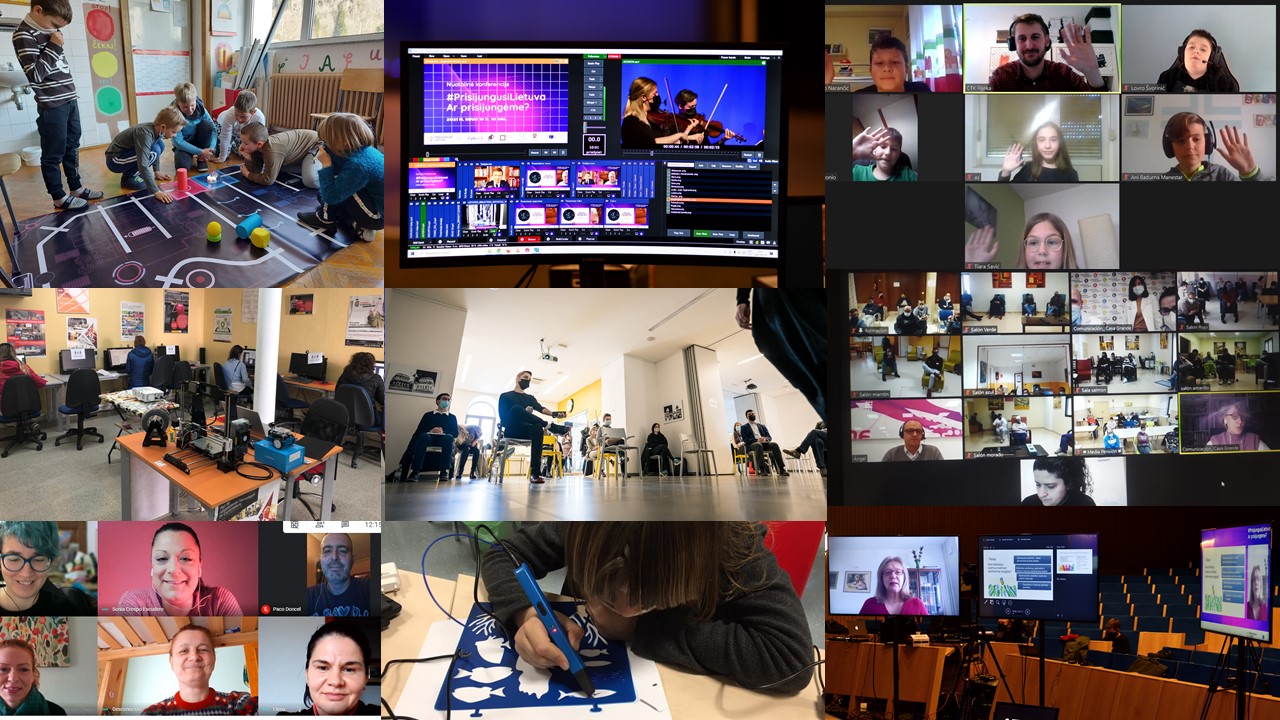
26 May All Digital Week 2021 supported 108,000 people to enhance their digital skills
26 May, 2021
2021 marked the 12th year of the Europe-wide All Digital Week campaign, which was more important than ever: Europe needs better digital skills to go beyond the pandemic.
The Covid-19 pandemic has presented humanity with a huge challenge to our known infrastructures – education systems, healthcare provision, social support, businesses and community cohesion. Society is tired of it all, and misinformation is one of the few things flourishing. At the same time, we have all been forced to learn new digital skills. New skills to continue learning, teaching, working, running a business, communicating with loved ones, and even discerning what information we can trust. According to Digital Economy and Society Index DESI, 42% of EU Population do not possess even basic digital skills, and with All Digital Week, we want to help them start their digital journeys and improve their digital competences and confidence to do it.
ALL DIGITAL Week 2021 was organised in partnership with: Europeana, Lifelong Learning Platform, Public Libraries 2030, and CEPIS, as well as ALL DIGITAL Members and their partners.

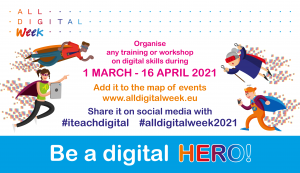
Based, on the map of events:
- 440 events were offered by 140 partners
- In 171 cities and towns
- in 24 countries: Armenia, Belarus, Belgium, Bulgaria, Czechia, Croatia, Cyprus, Estonia, Germany, Greece, Hungary, Italy, Latvia, Lithuania, Poland, Portugal, Romania, Russia, Spain, Sweden, Turkey, Ukraine, UK, and even India
- for 108,000 participants
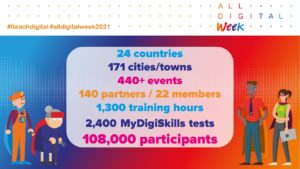
In some countries, the events managed to be run face-to-face (42%), while most were still held online (58%), and others in a hybrid format.
As always, the majority of events were devoted to the topics of Basic Digital Skills and Media Literacy (43%) and Advanced Digital Skills and Employability (37%).
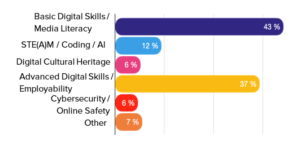
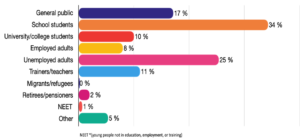

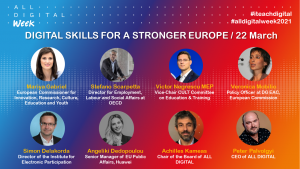



- Victor Negrescu MEP, Vice-Chair CULT Committee on Education & Training
- Veronica Mobilio, Policy Officer at DG Education, Youth, Sport & Culture, European Commission
- Simon Delakorda, Director of the Institute for Electronic Participation
- Angeliki Dedopoulou, Senior Manager of EU Public Affairs, Huawei
- Achilles Kameas, Chair of the Board of ALL DIGITAL
- Peter Palvolgyi, CEO of ALL DIGITAL
Read more about the event and watch the recording.
 Another important event of the campaign was the launch of MyDigiSkills – a new tool to help users understand their digital competences. It is based on the work done in the DigCompSAT project, as delivered by ALL DIGITAL for the European Commission’s Joint Research Centre (JRC) in 2020. The tool is based on DigComp 2.1, and it is anticipated that users will take around 20 minutes to complete the self-reflection assessment. The user will receive a personalised report on their digital competences that they can use to identify their strengths and weaknesses and identify the areas they could develop through training. At the time of the launch MyDigiSkills was available in seven languages: English, Spanish, Italian, German, Latvian, Lithuanian, and Romanian. By now four more are added: Dutch, French, Russian, and Ukrainian. The tool was launched on 23 March with an audience of over 100 people at the special webinar. During the campaign days, 1,400 people took the tests to check their digital competences.
Another important event of the campaign was the launch of MyDigiSkills – a new tool to help users understand their digital competences. It is based on the work done in the DigCompSAT project, as delivered by ALL DIGITAL for the European Commission’s Joint Research Centre (JRC) in 2020. The tool is based on DigComp 2.1, and it is anticipated that users will take around 20 minutes to complete the self-reflection assessment. The user will receive a personalised report on their digital competences that they can use to identify their strengths and weaknesses and identify the areas they could develop through training. At the time of the launch MyDigiSkills was available in seven languages: English, Spanish, Italian, German, Latvian, Lithuanian, and Romanian. By now four more are added: Dutch, French, Russian, and Ukrainian. The tool was launched on 23 March with an audience of over 100 people at the special webinar. During the campaign days, 1,400 people took the tests to check their digital competences.
Other events from ALL DIGITAL and our partners included:
- 22 March– Digital SkillShift webinar on re-skilling and up-skilling for online working
- 24 March – Smart-DevOps project webinar on developing skills for Smart City professionals
- 25 March – CDDC conference “Crowddreaming: Youth co-create Digital Culture”
- 26 March – STEAMonEdu webinar “Competence needs and professional development of STE(A)M educators”
- 30 March – Open-AE webinar on promoting open source technologies in non-formal adult education
- 31 March – Biblio webinar “Boosting digital skills and competences for librarians”
Read about the events, check speakers’ presentations, and watch the recordings by clicking on the links.
You can learn more about the campaign and specific events from each country, by visiting alldigitalweek.eu
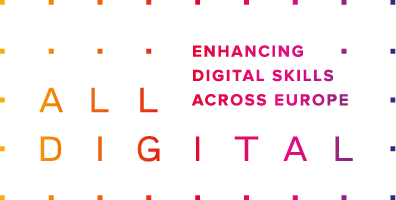
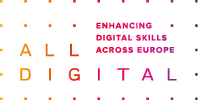
 Thank you for a successful All Digital Week 2021!
Thank you for a successful All Digital Week 2021!


